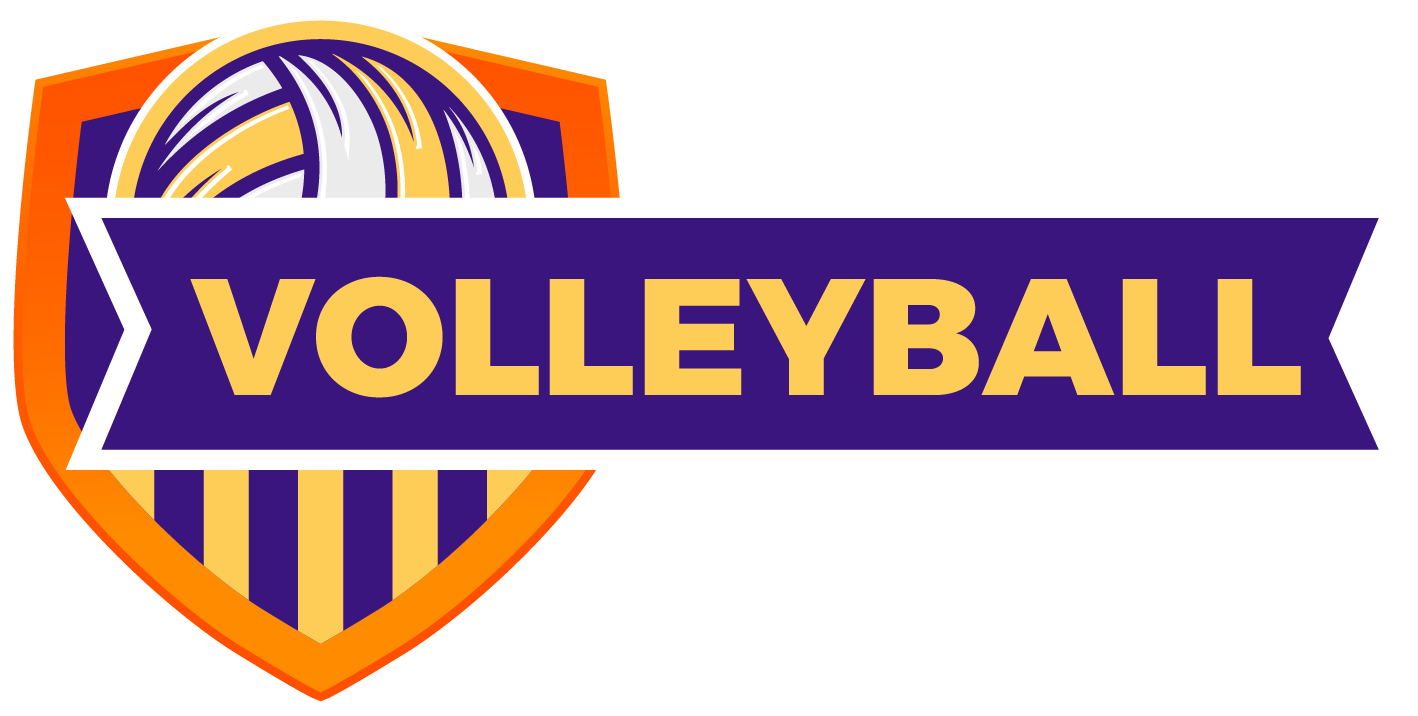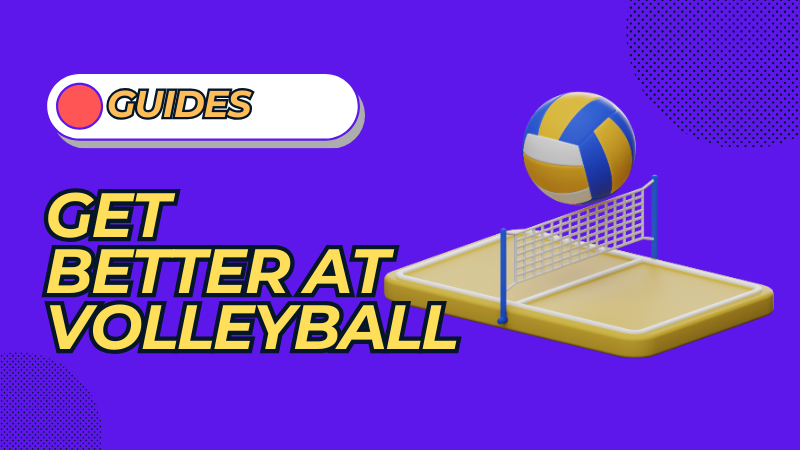Are you passionate about volleyball and determined to take your game to the next level? Perhaps you find yourself struggling to keep up with the pace on the volleyball court, fumbling with serving accuracy, or getting blocked at the net. These challenges can dampen your spirits, especially when you know you’ve got the potential.
But don’t be disheartened! With dedication and the right guidance, you can overcome these obstacles. After all, becoming a top player like Leonardo Leyva, who holds the record for the most points scored in a single match (59 points for Korea champions Samsung Blue Fangs in the “Top Match” against Japan champions Osaka Blazers Sakai in Sendai), wasn’t achieved overnight. It took practice, persistence, and attention to various aspects of the game.
From building physical strength to perfecting passes, every element counts. In this article, we’ll explore how to get better at volleyball and enhance your skills, whether you’re a beginner looking to learn the ropes or an advanced player ready to spike your way to victory.
9 Tips to Massively Improve Your Volleyball Skills
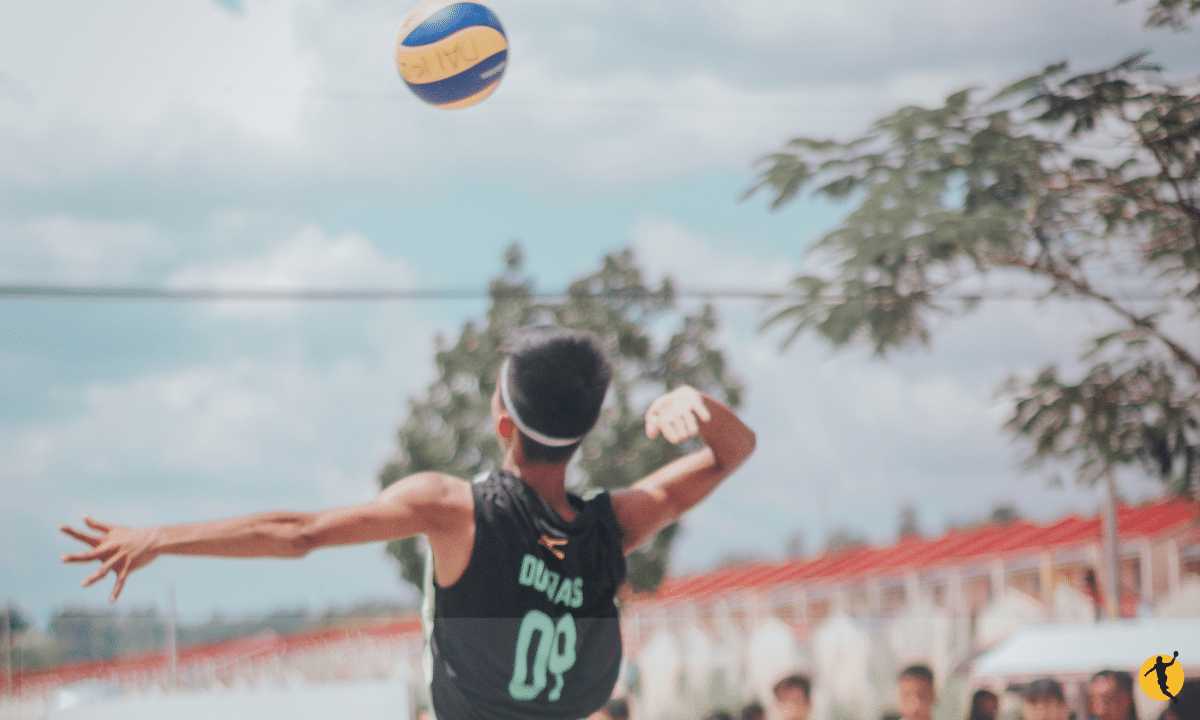
Let’s dive into these essential tips that can massively improve your skills. These strategies cater to every game aspect, from physical fitness to mastering specific techniques. So, whether you’re a novice striving to play good volleyball or a seasoned player aiming to become the best, these tips will help you sharpen your skills and enhance your gameplay.
Become More Physically Fit
Improving your physical fitness is a key foundation in enhancing your volleyball prowess. Building strength, agility, flexibility, and stamina can make a difference on the court. Focus on exercises like sprint running, dumbbell snatch, overhead triceps, single-head-RDL, and overhead press. Remember to work on your shoulder and leg stretches to maintain flexibility. These exercises help you move faster, jump higher, and prevent injuries.
Practice Serving
Serving can make or break the game, so it’s essential to master this skill. Balance the stance while serving, focusing on foot direction, target, arm swing, and angle calculation. Understanding the various serving types, such as underhand, floater, jump, and topspin, can enhance your “ace” serve. Serving is vital; continuous practice will provide the consistency needed to excel.
Perfecting Passes
Your passing abilities play a crucial role in team coordination. The locking of elbows, shoulder and arm positioning, and body postures while passing are essential. Concentrating on the serving height, ball trajectory, and team member positioning enhances your passing skills. Remember, a well-executed pass can set up a perfect spike, bringing your team one step closer to victory.
Try Slow-Motion Training
In volleyball, fast-paced decisions and movements are the norms. Slow-motion training can heighten your awareness and agility, preparing you for dynamic roles like passing, spiking, and volleying. This training helps sharpen reflexes and increase team coordination, making you a more responsive and versatile player.
Blocking Techniques
Being an efficient blocker is not just about jumping but timing, hand positioning, and penetration. Practice your jumps, ball handling, and court penetration. Proper training in finger and wrist positioning can lead to more successful blocks. The more you practice, the better you predict your opponent’s moves.
Practicing Power Hits
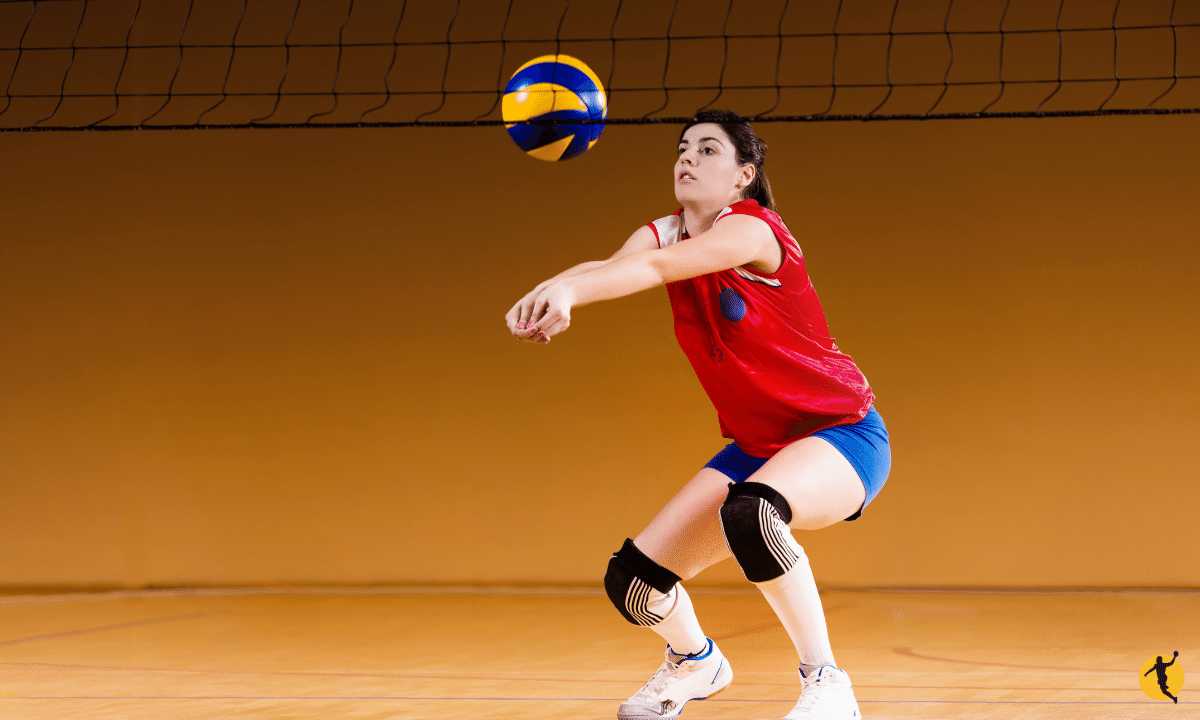
Want to be a point-winning player? Shoulder and arm exercises like dumbbell swings and military-press can enhance your power hitting. On-court practices of spiking and power-hitting make you more formidable at the net. With time, you can develop the strength and technique to dominate the game with your hits.
Changing Positions Dynamically
Volleyball isn’t a static game. Being able to change positions dynamically on the court is a vital skill. This ability allows you to adapt to the game’s flow and effectively respond to your opponents’ actions. It’s a skill that requires mental agility, physical flexibility, and seamless coordination with your teammates.
Practicing With the Ball
Getting familiar with the ball is a must. Ball control is an essential skill in volleyball, and consistent practice helps hone this skill.
Against a Wall
Practicing against a wall can immensely improve your ball control. It’s a simple yet effective way to train your passing and serving skills, enhancing accuracy and precision.
Ball Control Drills
Specific ball control drills can significantly increase your ability to manage the ball during gameplay. Regular practice of these drills builds consistency and boosts confidence.
Attacking at the Net
Attacking at the net requires timing, strength, and strategy. Working on jump timing and hitting techniques helps you become a more effective attacker. Practicing with your team to coordinate attacks can make the difference between an ordinary hit and a match-winning spike.
By adopting these tips and committing to regular practice, you’ll improve significantly, moving closer to becoming the best volleyball player on your team and even one of the best in the game.
Also, Read: When Does Volleyball Season Start?
How Many Days a Week Should I Practice Volleyball?
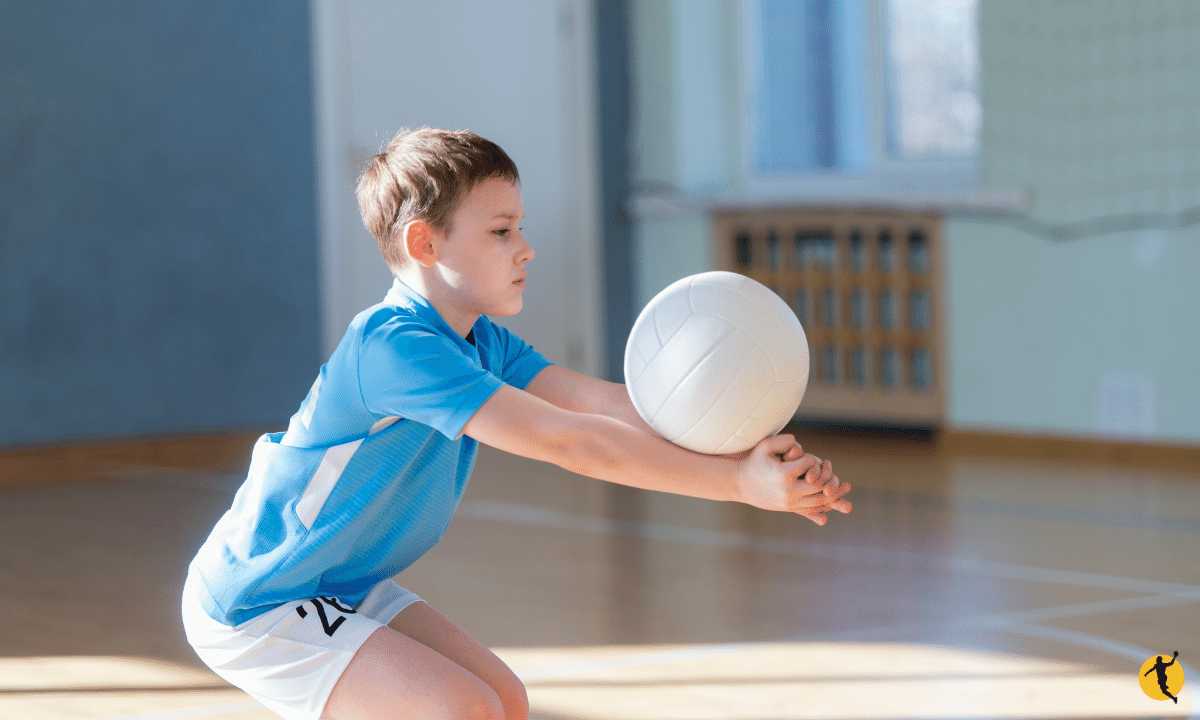
The question of how many days a week you should practice volleyball often pops up for aspiring players. There’s no one-size-fits-all answer, as it depends on your schedule, goals, and the level you play. But let’s delve into some general guidelines that can help you shape your volleyball practice routine.
Understanding Your Goals
First and foremost, it’s essential to identify what you want to achieve. Are you trying to make the varsity team or want to play better in your weekend league? Once you know your goals, you can tailor your practice schedule accordingly.
Balancing Practice with Rest
While practicing regularly is key to improving your volleyball skills, such as serving, passing, and hitting the ball, allowing time for rest and recovery is crucial. Balancing rigorous training and adequate rest can improve performance and prevent injuries.
A Typical Practice Schedule
Practicing 3 to 4 times a week is generally recommended for those serious about improving their volleyball game. This can include various drills, games, and physical fitness exercises, such as sprint running and dumbbell snatch, which can help you improve at volleyball.
- Beginners: 2-3 days a week, focusing on basic skills like passing or setting and understanding the team’s dynamics.
- Intermediate Players: 3-4 days a week, emphasizing specific areas like footwork, hitting, and blocking techniques.
- Advanced Players: 4-5 days a week, honing advanced strategies and positions and developing the ability to adapt dynamically on the court.
The bottom line is that consistent, focused practice is one of the best ways to improve your volleyball skills. But remember, quality often trumps quantity. Work with a coach or trainer if possible, and don’t hesitate to modify your schedule based on how your body feels. After all, volleyball isn’t just about physical prowess; it’s about connecting the body and mind, understanding the game, and being a good teammate.
Also, Read: Can You Wear Basketball Shoes for Volleyball?
How Do You Train to Hit a Volleyball Harder?
Hitting a volleyball with power is an essential skill that can give your team the edge. A powerful spike can be a game-changer, but how do you train to hit the ball harder? Here’s a detailed guide to help you increase your hitting power in volleyball.
- Strengthening the Upper Body: The power behind a hit comes primarily from your upper body, particularly the shoulders, arms, and core. Exercises like push-ups, pull-ups, and core stability workouts can build strength.
- Improve Your Arm Swing Technique: Your arm swing plays a pivotal role in the force with which you hit the ball. Practicing your approach, timing, and hand positioning can enhance your arm swing, leading to a more powerful hit. The more fluid and fast your arm swings, the harder you can hit the ball.
- Enhance Footwork and Lower Body Strength: The strength and coordination of your legs are equally essential. Work on exercises that increase your leg power, such as squats and lunges. Enhancing footwork with drills like jump rope can help you position yourself correctly to deliver a powerful hit.
- Work on Your Timing: A significant aspect of hitting harder is timing your jump and swing precisely. By practicing with a teammate or coach, you can develop the timing that allows you to connect with the ball at the optimal point, maximizing the power of your hit.
- Use Proper Equipment: Ensure you have the right volleyball and footwear to facilitate harder hitting. If the ball is too soft or your shoes don’t provide proper grip, it may hinder your ability to generate force.
- Analyze and Learn from the Best: Observing and learning from top players can provide valuable insights into hitting techniques. For instance, the highest spike touch on record is held by Bulgarian player Matey Kaziyski, who reached a height of 3.89 meters during the 2007 FIVB World League Final Round. Studying his form and execution can inspire.
- Mental Preparation: Lastly, believing in yourself and having a focused mindset is key. Visualize your hits and practice with intent. Volleyball isn’t just about physical skills; mental preparation can make a massive difference in your performance.
Hitting a volleyball harder requires physical training, technique improvement, mental preparation, and the right equipment. By putting in the hard work and focusing on these key areas, you can develop a powerful hit that adds a new dimension to your game. Remember, practice, patience, and persistence are vital in this journey; there’s always room to grow and become the best player on your team.
Also, Read: How to Score and Win with Basic Volleyball Rules
Conclusion
Improving your volleyball skills is a multifaceted endeavor that requires dedication, practice, and a strategic approach. Focusing on enhancing your physical fitness, mastering serving techniques, and honing specific skills like passing and hitting is essential. Utilizing various training methods such as slow-motion training, practicing power hits, and dynamic positioning can transform your game to a higher level.
Incorporating these tips and insights from the impressive feats of professional players like American Clayton Stanley, Brazilian Fabiana Claudino, and Cuban Osmany Juantorena can inspire and guide your journey. Whether you’re practicing at home or with a volleyball team, regular and thoughtful practice combined with a willingness to work hard can lead to massive improvements in your game. Make volleyball not just a sport but a lifelong pursuit of excellence.
FAQS:
How Can I Improve My Volleyball Skills Fast?
Improving your volleyball skills fast requires focused practice in specific areas such as serving, passing, hitting, and blocking. Working with a coach or experienced player can provide targeted feedback. Also, utilizing drills that mimic game situations and emphasizing physical fitness can lead to quicker improvement. Remember, consistency and quality over quantity in your practice sessions will make a difference.
How Can I Improve My Volleyball Skills at Home?
Improving volleyball skills at home can be done through various exercises and drills. Practice serving against a wall, perform ball control drills like setting and passing with a partner or solo, and work on your physical fitness with strength and conditioning exercises. Utilizing online resources like video tutorials from professional players can also be beneficial.
What Sports Help With Volleyball?
Several sports can complement and enhance your volleyball skills. Basketball helps with jumping and hand-eye coordination; soccer can improve footwork; swimming offers great conditioning for the upper body, and track and field can boost your overall speed and agility. Engaging in these sports can add diversity to your training and improve your volleyball performance.
How Do You Train to Hit a Volleyball Harder?
Training to hit a volleyball harder involves strengthening the upper body, enhancing footwork, improving your arm swing technique, and perfecting your timing. Specific exercises like push-ups, squats, and jump ropes are essential. Working with the proper equipment and analyzing top players can also offer insights. Mental preparation, visualization, and consistent practice with intent will complete your training to hit the ball with more power.
